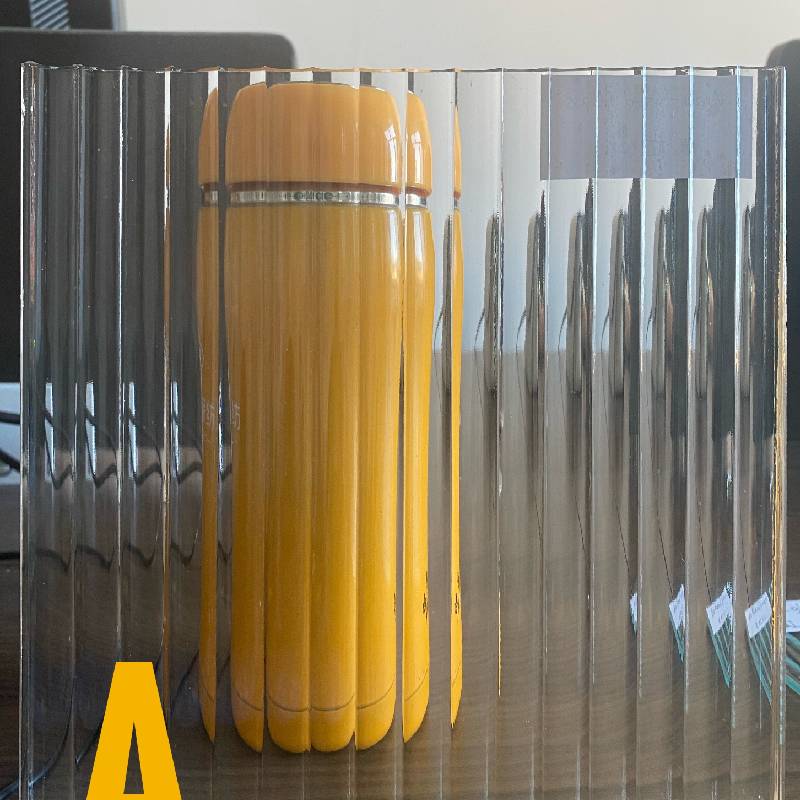The Art and Science of Making Tempered Glass
Tempered glass, also known as toughened glass, has become an essential material in various industries due to its enhanced strength and safety features. Unlike standard glass, tempered glass undergoes a rigorous process that increases its durability significantly, making it ideal for applications in construction, automotive, and home décor. This article delves into the intricate process of making tempered glass, its benefits, and its diverse applications.
The Manufacturing Process
The creation of tempered glass begins with the selection of the raw materials, which predominantly include silica sand, soda ash, and limestone. These materials are melted together in a furnace at extremely high temperatures, typically exceeding 1,600 degrees Fahrenheit (870 degrees Celsius). Once melted, the glass is formed into sheets and allowed to cool slowly to achieve a uniform thickness.
Once the basic glass sheet is produced, the tempering process commences. This involves heating the glass to around 1,200 degrees Fahrenheit (650 degrees Celsius) and then rapidly cooling it through a method known as quenching. This rapid cooling is what sets tempered glass apart from ordinary glass. By cooling the outer layer of the glass quickly while allowing the inner portion to cool slowly, a state of compression is created in the surface of the glass. This state of tension is what gives tempered glass its remarkable strength.
Advantages of Tempered Glass
The benefits of tempered glass are manifold. First and foremost, it is significantly stronger than standard glass, with the ability to withstand impacts and thermal shock. This makes it less likely to break under stress—when it does break, it shatters into small, blunt pieces instead of sharp shards, reducing the risk of injury.
Another essential advantage is its ability to tolerate extreme temperature fluctuations. This property is particularly beneficial in environments where glass may be subjected to sudden changes in temperature, such as in the facades of skyscrapers or in vehicle rear windows. Additionally, tempered glass provides excellent insulation properties and can enhance energy efficiency in buildings.
making tempered glass
Tempered glass also boasts aesthetic qualities. It can be produced in various thicknesses and can be treated to create different finishes, allowing architects and designers to use it creatively in both commercial and residential projects. Its clarity and brilliance can enhance the overall appeal of homes and buildings, providing an unobstructed view while ensuring safety.
Applications of Tempered Glass
The applications of tempered glass are extensive. In the construction industry, it is used in windows, shower doors, and glass facades, providing safety without compromising on style. Its use in balustrades and partitions has grown, driven by the demand for transparent yet secure installations in modern architecture.
In the automotive field, tempered glass is commonly used for side windows and rear windshields in vehicles. The shatter-resistant nature of tempered glass ensures passenger safety in the event of an accident. Furthermore, appliances such as ovens and cooktops often utilize tempered glass to withstand high heat and thermal changes, providing an essential safety feature for consumers.
In addition, tempered glass is increasingly used in furniture design, such as tabletops and shelving. Designers appreciate its strength and aesthetic appeal, allowing for stylish, minimalist creations that do not compromise on safety.
Conclusion
The process of making tempered glass is a testament to human ingenuity, blending art with science to create a material that offers both functionality and beauty. As technology continues to evolve, the techniques used in producing tempered glass are expected to advance, introducing new possibilities and enhancing its applications even further. Whether in skyscrapers, automobiles, or home furnishings, tempered glass is set to remain a pivotal material in our everyday lives, contributing to safety, durability, and design innovation.
 Afrikaans
Afrikaans  Albanian
Albanian  Amharic
Amharic  Arabic
Arabic  Armenian
Armenian  Azerbaijani
Azerbaijani  Basque
Basque  Belarusian
Belarusian  Bengali
Bengali  Bosnian
Bosnian  Bulgarian
Bulgarian  Catalan
Catalan  Cebuano
Cebuano  Corsican
Corsican  Croatian
Croatian  Czech
Czech  Danish
Danish  Dutch
Dutch  English
English  Esperanto
Esperanto  Estonian
Estonian  Finnish
Finnish  French
French  Frisian
Frisian  Galician
Galician  Georgian
Georgian  German
German  Greek
Greek  Gujarati
Gujarati  Haitian Creole
Haitian Creole  hausa
hausa  hawaiian
hawaiian  Hebrew
Hebrew  Hindi
Hindi  Miao
Miao  Hungarian
Hungarian  Icelandic
Icelandic  igbo
igbo  Indonesian
Indonesian  irish
irish  Italian
Italian  Japanese
Japanese  Javanese
Javanese  Kannada
Kannada  kazakh
kazakh  Khmer
Khmer  Rwandese
Rwandese  Korean
Korean  Kurdish
Kurdish  Kyrgyz
Kyrgyz  Lao
Lao  Latin
Latin  Latvian
Latvian  Lithuanian
Lithuanian  Luxembourgish
Luxembourgish  Macedonian
Macedonian  Malgashi
Malgashi  Malay
Malay  Malayalam
Malayalam  Maltese
Maltese  Maori
Maori  Marathi
Marathi  Mongolian
Mongolian  Myanmar
Myanmar  Nepali
Nepali  Norwegian
Norwegian  Norwegian
Norwegian  Occitan
Occitan  Pashto
Pashto  Persian
Persian  Polish
Polish  Portuguese
Portuguese  Punjabi
Punjabi  Romanian
Romanian  Russian
Russian  Samoan
Samoan  Scottish Gaelic
Scottish Gaelic  Serbian
Serbian  Sesotho
Sesotho  Shona
Shona  Sindhi
Sindhi  Sinhala
Sinhala  Slovak
Slovak  Slovenian
Slovenian  Somali
Somali  Spanish
Spanish  Sundanese
Sundanese  Swahili
Swahili  Swedish
Swedish  Tagalog
Tagalog  Tajik
Tajik  Tamil
Tamil  Tatar
Tatar  Telugu
Telugu  Thai
Thai  Turkish
Turkish  Turkmen
Turkmen  Ukrainian
Ukrainian  Urdu
Urdu  Uighur
Uighur  Uzbek
Uzbek  Vietnamese
Vietnamese  Welsh
Welsh  Bantu
Bantu  Yiddish
Yiddish  Yoruba
Yoruba  Zulu
Zulu 

